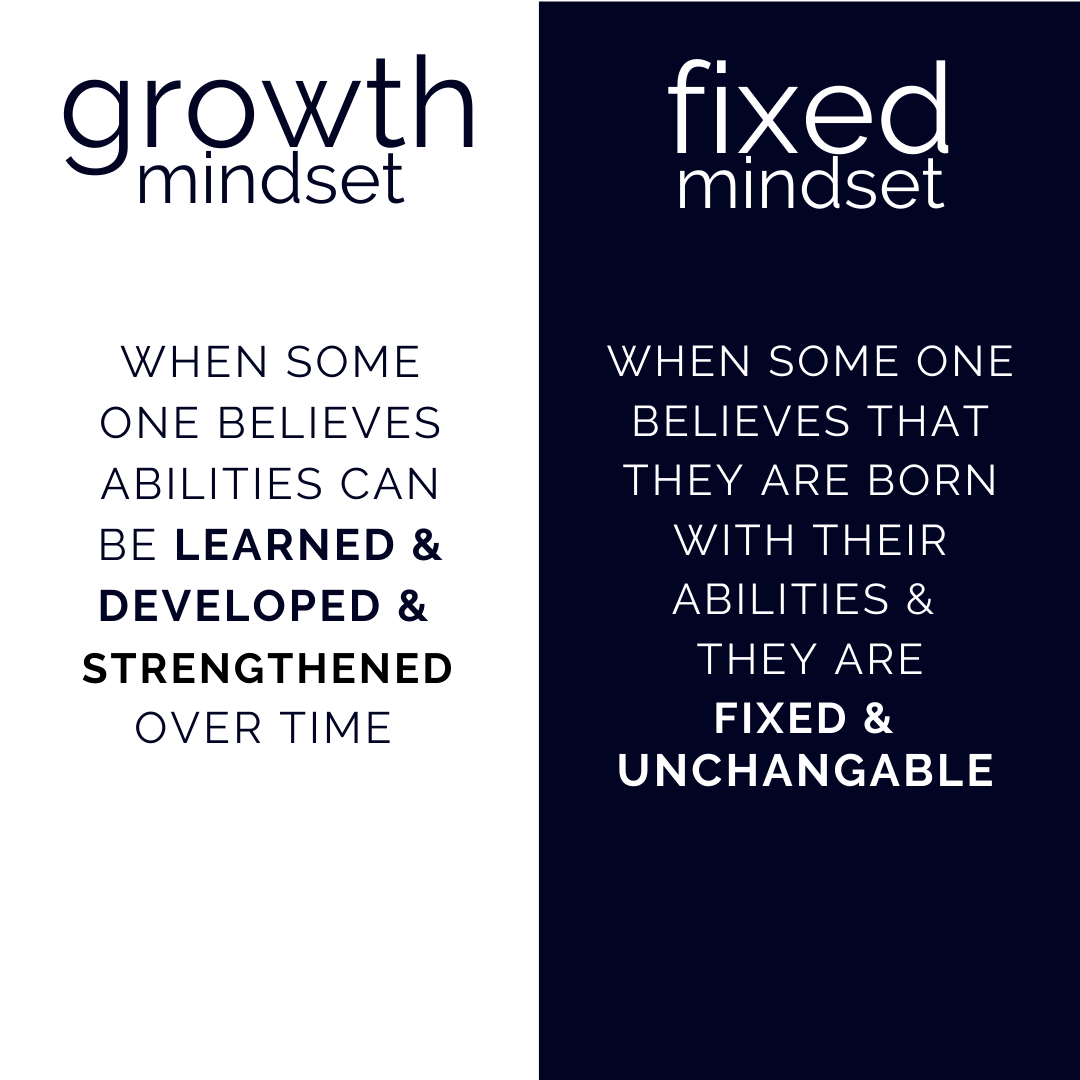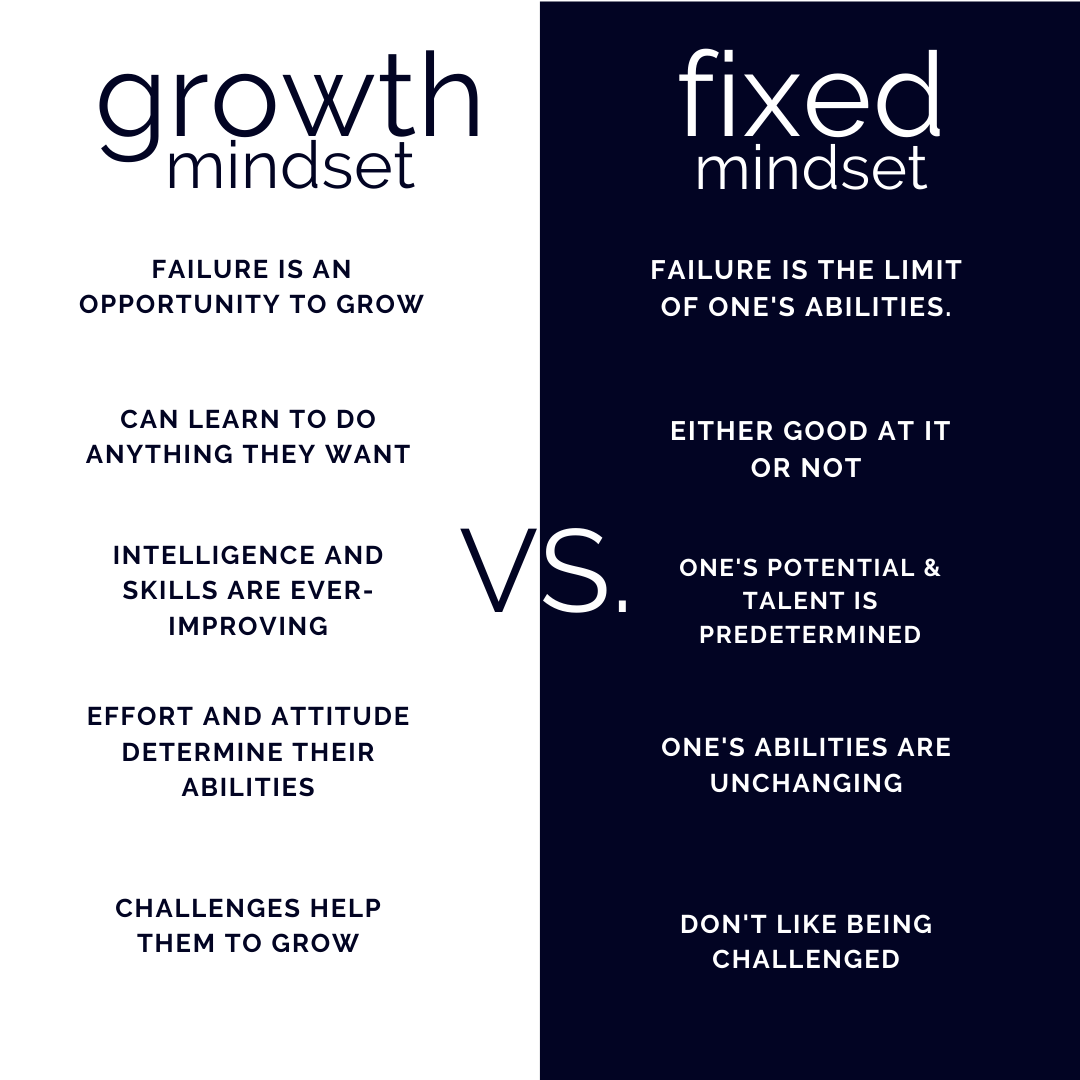MINDSET
KEY CONCEPTS
The way that we explain events that occur in our lives can directly affect our well-being. Developing a Growth Mindset will help you effectively navigate both positive and negative events, generate greater resilience, and transform your overall health.
Carol Dweck, PhD, one of the leading researchers on motivation, distinguishes between two mindsets in her book Mindset: The New Psychology of Success. She describes the different narratives that go through the minds of “learners and non-learners” and the different languages they use to describe themselves and events that happen in their lives. She explains:
1) A person with a Growth Mindset sees their ability as changeable, which can be developed through learning and can blossom with time. This is a person who understands effort is necessary for growth, and they thrive on challenges.2) A person with a Fixed Mindset sees their ability as fixed, which comes naturally and needs to be proven. This is a person who is not satisfied with success, being smart, or being talented, but feels the need to be flawless. They expect the ability to show up on its own before any learning takes place.
GROWTH MINDSET
Believe their personal qualities—intelligence, creativity, athletic ability—cannot be changed
These people feel a great need to prove themselves as capable and worthy over and over again
Interpret unfortunate events as "a direct measure of their competence and worth."
They don't foresee any way to make things better.
They are not interested in taking risks
FIXED MINDSET
Believe personal qualities can be cultivated through experience, strategies, and help from others
Not everyone will be an intellectual genius or a musical prodigy, but everyone has the capability to change and grow
They don't have a passion for success or praise. They have a passion for learning.
After an unfortunate event, they immediately jump into coping mode.
They might still feel distress, but they channel it into confronting challenges head-on.
Who has accurate views of their Assets & Limitations?
People in general greatly misestimate their performance and ability
However, it is those with the fixed mindset who accounted for almost all the inaccuracy
People with the fixed mindset have a distorted view of their ability as they only see their traits as good or bad
People with the growth mindset were very accurate. This is because when you believe in developing yourself, you’re open to accurate info about your current abilities
Therefore, they are able to identify their own strengths and weaknesses
The growth mindset is based on facilitating change. The changes can involve our attitudes, beliefs, and actions and do not have to be drastic.
The nature of change is the idea of changing one’s internal mental attitude that focuses on extreme, unchangeable, and judging attitudes to a mindset that is focused on learning and constructive action.
When we change, our old beliefs and attitudes do not get removed and replaced with more superior ones. Instead, our new beliefs are used in conjunction with our old ones to give us a completely new way of feeling, thinking, and acting.
REFERENCE: Dweck, C. S. (2008) Mindset: the new psychology of success. New York: Ballantine Books.










